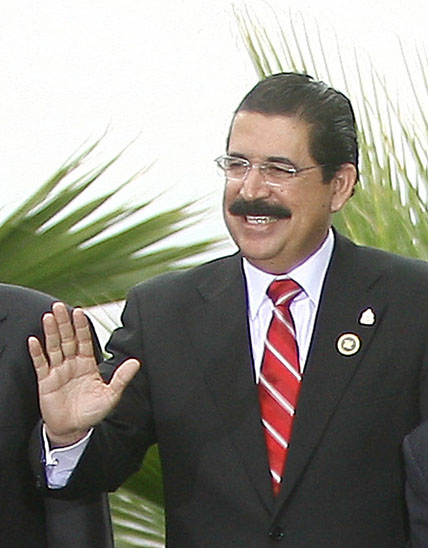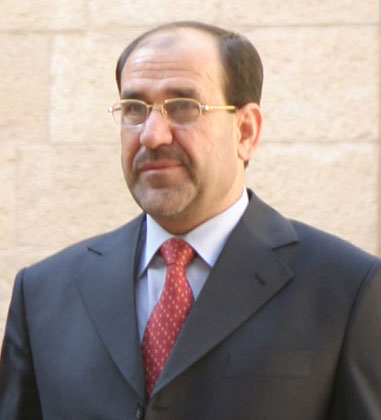 Argentina’s government has demanded the resignation of the Honduran ambassador to Buenos Aires. The request came from Honduras’ ousted president, Manuel Zelaya,
Argentina’s government has demanded the resignation of the Honduran ambassador to Buenos Aires. The request came from Honduras’ ousted president, Manuel Zelaya,
who cited the ambassador’s public support for the coup that removed the
democratically elected leader in June. The Argentine foreign ministry said in a statement that it “ordered the cessation of functions” of Ambassador Carmen Eleonora Ortez Williams because of her support for Honduras’ interim regime, led by Roberto Micheletti. The de facto government, which has been internationally condemned and isolated since taking power on June 28, is not recognized by Buenos Aires, which supports the Organization of American States’ calls for Zelaya’s reinstatement. Zelaya, who met Thursday with Chilean President Michelle Bachelet, praised the OAS for its support and called on the international community, particularly the United States, to take more “drastic actions” against Micheletti’s government.
In celebration of Pakistan’s Independence Day, Pakistani president Asif Ali Zardari has lifted a ban on political activities in the nation’s tribal regions. The seven federally administered tribal areas (FATA) along Pakistan’s western border with Afghanistan will now be allowed to publicly organize political parties and campaigns, actions that had been banned in 1996. Announcing the change during a public address, Zardari vowed to “defeat the militant mindset” which has plagued the tribal areas since the U.S. invasion of Afghanistan in 2001. The region has been home to spillover violence from clashes between local tribes and Taliban or Al Qaeda militias. Under the ban, adults in the the region were allowed to vote for a representative in the Pakistani assembly but were not allowed to organize political parties of their own. As a result, Islamist candidates would privately campaign through their mosques, increasing Islamist presence in the national assembly. Zardari, an important ally of President Barack Obama, received a boost last week when the Taliban leader Baitullah Mehsud was allegedly killed by a U.S. missile attack on South Waziristan, one of the tribal regions where the Taliban have been especially active. Taliban officials have vehemently denied reports of their leader’s death.
Leaders from the four major nations of the trans-Sahel region—Algeria, Mali, Mauritania, and Nigeria—concluded a two-day summit in Algiers on Thursday where they addressed joint efforts to combat cross-border terrorism. Concerns that radical militant groups have regained strength in the region reappeared most recently in last week’s suicide bombing at the French Embassy in Mauritania, believed to be organized by a group that trains in Mali and Algeria. In July, several al-Qaeda attacks in Algeria, directed particularly at foreigners, signaled the groups surge in regional influence, which some expect to increase as typical strongholds like Afghanistan and Pakistan become overrun with U.S. armed forces. The four-nation meeting set a general framework for cooperation in combating terrorism, though specific military commitments were not announced. Some military strategists say that even with cooperation, it may be difficult to contain the regional threat. “How are four armies with marginal capabilities and different languages going to communicate in the middle of the Sahara?,” asks Clint Watts, a former counter terrorism expert at West Point. “Hunting down international terrorist networks is not their thing.”
 Iraqi Prime Minister Nouri al-Maliki will not run with a Shiite coalition in January national elections, according to aides close to the leader. Maliki, a Shiite, has revealed his intentions of running on a multi-ethnic ticket comprised of both Sunni and Shiite candidates. The leader will leave the United Iraqi Alliance, a predominantly-Shiite coalition which holds a vast majority in the Iraqi parliament, in the hopes of forming a “truly national alliance.” Maliki has aimed to bridge sectarian divides within his nation that intensified after the U.S. invasion of Iraq in 2003. News of Maliki’s decision came amid growing tensions between his Dawa party and the Supreme Iraqi Islamic Council (SIIC) which dominates the United Iraqi Alliance. SIICE leaders have criticized Maliki and his fellow Dawa leaders for their “pride and vanity,” and have accused Maliki of becoming a pawn of Sunni Baathists.
Iraqi Prime Minister Nouri al-Maliki will not run with a Shiite coalition in January national elections, according to aides close to the leader. Maliki, a Shiite, has revealed his intentions of running on a multi-ethnic ticket comprised of both Sunni and Shiite candidates. The leader will leave the United Iraqi Alliance, a predominantly-Shiite coalition which holds a vast majority in the Iraqi parliament, in the hopes of forming a “truly national alliance.” Maliki has aimed to bridge sectarian divides within his nation that intensified after the U.S. invasion of Iraq in 2003. News of Maliki’s decision came amid growing tensions between his Dawa party and the Supreme Iraqi Islamic Council (SIIC) which dominates the United Iraqi Alliance. SIICE leaders have criticized Maliki and his fellow Dawa leaders for their “pride and vanity,” and have accused Maliki of becoming a pawn of Sunni Baathists.
Read more about Nouri al-Maliki in the spring ‘09 issue of the World Policy Journal in Ned Parker’s article, Machiavelli in Mesopotamia: Nouri al-Maliki Builds the Body Politic.
German Chancellor Angela Merkel arrived at Russian President Dmitri Medvedev’s seaside residence in Sochi on Friday to discuss economic relations between the two nations. Amid reports on Thursday that Germany, Europe’s largest economy, is finally showing growth (thus ending its recession far earlier than it expected), Merkel said she was still eager to work out bilateral agreements with Russia that are essential for continued recovery. Russia’s Sberbank has committed to buying a large share of struggling German automaker Opel, which has become a major liability for the German government during the financial crisis. Russian newspapers also reported on Friday that Sistema, a Russian holding company, will purchase a stake in Germany’s Infineon Technology. Investment bankers at Russia’s Renassaince Capital called this move, which was set to be discussed by the two leaders today, strictly political–a sign of how eager the two governments are to cooperate. Observers say Medvedev also has much to gain from the meeting, particularly in securing Merkel’s support for the Nord Stream oil pipeline, which is set to be finished by 2012 and will channel oil directly from Russia to Germany’s Baltic Sea coast.